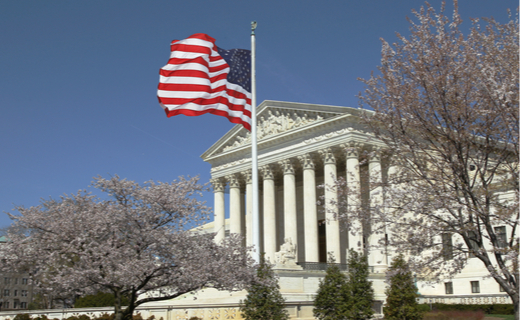Politics
BREAKING: Reagan-Appointed Supreme Court Justice Passes Away At 93

Sandra Day O’Connor, the groundbreaking female U.S. Supreme Court Justice appointed by Ronald Reagan who paved the way for many future female justices, passed away Friday morning. She was 93.
The announcement, made by the court, honored O’Connor for blazing trails as the first female Supreme Court judge in the nation’s history. She was nominated for the bench in 1981 and described then by President Reagan as “truly a person for all seasons, possessing those unique qualities of temperament, fairness, intellectual capacity, and devotion to the public good which have characterized the 101 brethren who have preceded her.”
In 2018, O’Connor made public that she was struggling with dementia, likely Alzheimer’s, a disease that would eventually rob her of the ability to perform basic bodily functions.
WATCH:
“While the final chapter of my life with dementia may be trying, nothing has diminished my gratitude and deep appreciation for the countless blessings of my life,” she wrote.
O’Connor lived long enough to see the Supreme Court take a conservative turn, overturning a 1992 ruling that established the “essential holding” of Roe v. Wade and the right to have an abortion. For years she served as the court’s swing vote, helping pass rulings bolstering affirmative action and limiting the federal government’s power to detain terrorist suspects in times of war. However, she sided with the court’s conservative wing in 2000, helping cement a historic win for former President George W. Bush.
Former clerk Marci Hamilton, speaking with CNN, said it is an error to dismiss O’Connor as a tepid voice on the court who held her finger to the wind.
“Those would be the people who have never met her,” Hamilton said. “Anyone who has met her knows that she makes up her own mind and is not at all concerned where anyone else is on the spectrum.”
O’Connor resigned from the court in 2005, allowing President Bush to appoint the much more conservative Samuel Alito. Despite caring for an ailing husband also in the throes of Alzheimer’s, O’Connor said she regretted having to resign and knew the decision would push the court ideologically to the right.
Asked about the symbolism of being the nation’s first female Supreme Court justice, she hoped her tenure would inspire a new outlook on the role of women in national positions of power. Indeed they may have, as five more women have since gone to the court’s bench.
“Let me tell you one reason why I think it’s important, and that is for the public generally to see and respect the fact that in positions of power and authority, that women are well-represented,” O’Connor said in a 2003 interview with CNN. “That it is not an all-male governance, as it once was.”

